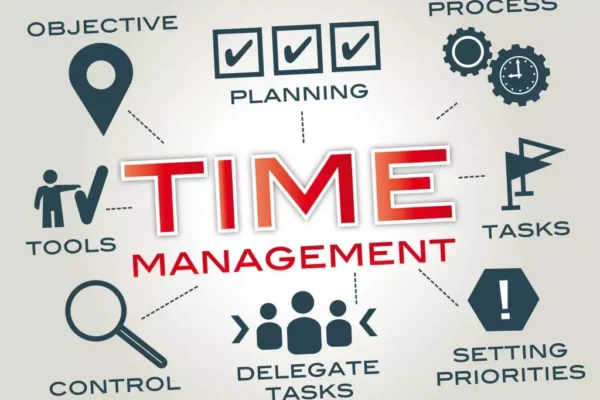
Maintaining a good work-life balance is crucial for both your professional and personal lives. Finding the correct balance can increase your productivity, happiness, and health.
Here are some pointers for reaching and preserving this balance:
1. Establish Clear Boundaries:
Separate your professional hours from your leisure time. Make it a point to uphold these restrictions because doing so enables you to keep a distinct division between your personal and business lives.
2. Set Task Priorities:
Decide on the most crucial tasks and concentrate on them throughout working hours. To be more effective, avoid multitasking and focus on what is most important.
3. Time Management:
To help you work in concentrated bursts and take regular breaks to refuel, adopt time management strategies like the Pomodoro technique.
4. Learn to Say No:
Don’t take on too much. When you are already overburdened, politely deny taking on further tasks or obligations. It’s critical to manage your workload efficiently.
5. Delegate:
Whenever you can, delegate work in both your personal and professional lives. This can help you feel less stressed and have more time for important activities.
6. Make Smart Use of Technology:
Although it can boost productivity, technology can sometimes be a distraction. Use tools and programmes to help you manage your time, rather than steal it.
7. Invest in Self-Care:
Schedule time for mental and physical recharging activities. Self-care includes activities like meditation, exercise, hobbies, and quality time with loved ones.
8. Set Achievable Goals:
Establish realistic objectives for both your professional and personal lives. Expectations that are too high might cause tension and imbalance.
9. Adaptability and Flexibility:
Recognise that equilibrium may not always be ideal. There will be occasions when your personal life requires more of your attention than your business does. Being flexible is important.
10. Communication:
Keep in touch with your family, coworkers, and employer. Tell them your restrictions and your available times. To keep things balanced, communication needs to be effective.
11. Disconnect:
Establish a routine of disconnecting from work-related emails and chores while you are on your own time. Everyone needs time to unwind, and being constantly connected can cause burnout.
12. Quality Over Quantity:
Pay attention to the calibre rather than the quantity of your work and personal time. More essential than putting in long hours with loved ones is spending meaningful time with them.
13. Reflect and Evaluate:
Regularly evaluate your work-life balance. Are you happy with it now? Are any modifications required? Regular self-reflection can aid in the necessary changes you need to make.
Always keep in mind that finding a work-life balance is a process that is unique to each individual. It’s crucial to strike a balance that works for your particular requirements, priorities, and situation. In the long run, pursuing this balance will result in a happier, healthier, and more fulfilled existence, which will be good for both your professional and personal well-being.

“Work-Life Balance” FAQs
I. What does “work-life balance” mean?
The balance between one’s professional (job) and personal (family, leisure, health, etc.) lives is referred to as work-life balance. Both spheres of life, involve efficient time and energy management.
II. Why is work-life balance important?
Maintaining mental and physical health, lowering stress, and improving overall quality of life all depend on finding a suitable work-life balance.
III. What indications point to a poor work-life balance?
Chronic stress, burnout, exhaustion, strained relationships, lower productivity, and deteriorating mental or physical health are all indicators of an unhealthy work-life balance.
IV. Is a perfect work-life balance even possible?
It might not be possible to achieve the ideal balance. Finding a balance that works for you and being flexible when your circumstances change are key.
V. What tools are available to support balancing work and life?
Self-help books, counselling, employee assistance programmes, time management apps, and advice from friends and family can all be beneficial resources.










